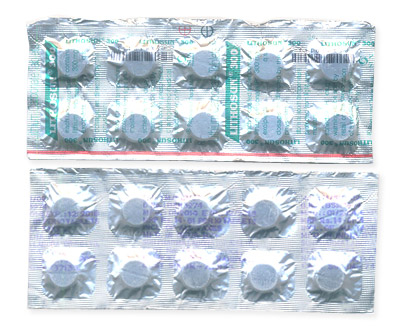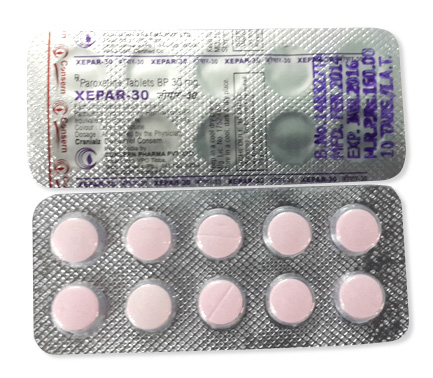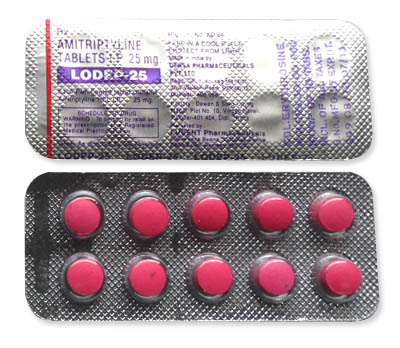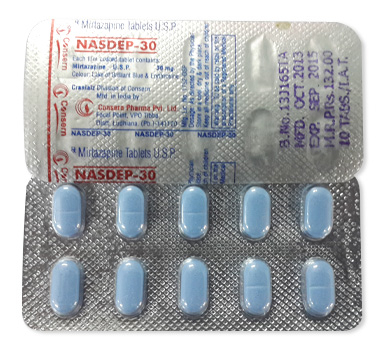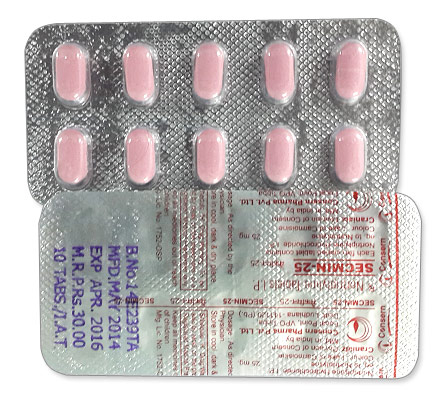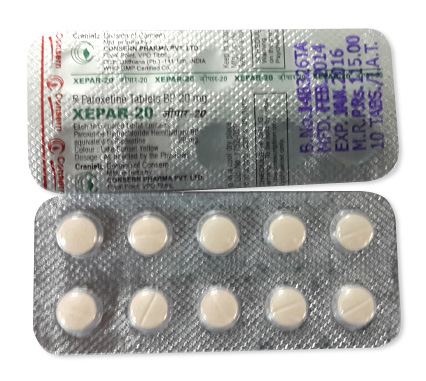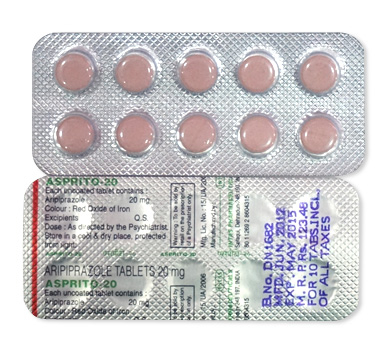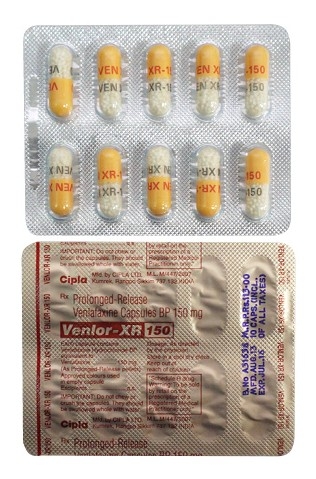Risperdal
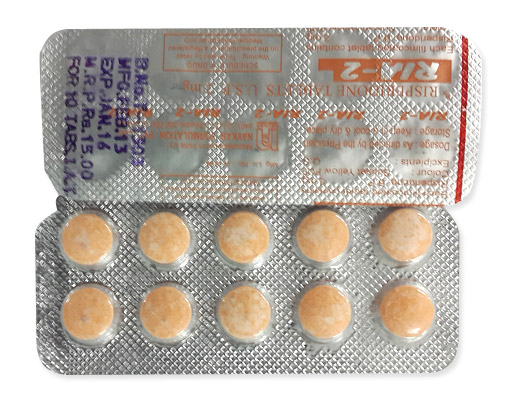
Risperdal
- In our pharmacy, Risperdal (risperidone) requires a valid prescription. Delivery options and timeframes vary by region following regulatory approvals.
- Risperdal treats schizophrenia, bipolar mania, and autism-related irritability by blocking serotonin (5-HT2A) and dopamine (D2) receptors in the brain to restore neurotransmitter balance.
- Usual oral dosages range from 2 mg to 8 mg daily for adults depending on the condition. Pediatric dosing starts lower (e.g., 0.25–0.5 mg/day for autism).
- Administration forms include tablets, orally disintegrating tablets, oral solution (1 mg/mL), and long-acting injection (Risperdal Consta® every 2 weeks).
- Initial effects start within a few days for oral forms, but full therapeutic benefits may take 4–6 weeks. Injectable forms require 3 weeks to initiate effect due to slow release.
- Oral formulations last approximately 24 hours per dose, requiring daily intake; long-acting injections maintain steady levels for 2 weeks per administration.
- Avoid alcohol consumption, as it can intensify side effects like dizziness, drowsiness, and hypotension.
- Most common side effects include drowsiness, weight gain, dizziness, tremor, and occasional extrapyramidal symptoms.
- Would you like to try Risperdal?
Basic Risperdal Information
| Information Type | Details |
|---|---|
| International Nonproprietary Name (INN) | Risperidone |
| UK Brand Names | Risperdal, generic risperidone |
| ATC Classification | N05AX08 |
| Available Forms & Strengths | Tablets: 0.25mg, 0.5mg, 1mg, 2mg, 3mg, 4mg Orally Disintegrating Tablets: 0.5mg-4mg Oral Solution: 1mg/mL Long-acting Injection: 25mg-50mg |
| Primary Manufacturers | Janssen Pharmaceuticals (originator), Terapia S.A., multiple generic suppliers |
| UK/EU Regulatory Status | Prescription-only medicine (Rx) |
Risperdal, available as brand-name and generic risperidone tablets, is an antipsychotic prescription medication classified under ATC code N05AX08. The medication requires strict temperature-controlled storage below 25°C to maintain stability. European Medicines Agency regulations permit distribution only through licensed pharmacies with valid prescriptions. The Medicines and Healthcare products Regulatory Agency provides detailed safety information in the EMA's public assessment report for Risperidone which outlines manufacturing standards and quality controls.
Mechanism of Action and Pharmacokinetics
Risperidone functions by balancing key neurotransmitters, primarily blocking serotonin (5-HT2A) and dopamine (D2) receptors in the brain. This dual action helps regulate psychotic symptoms while reducing movement disorder risks compared to older antipsychotics. After oral administration, approximately 70% of the dose enters systemic circulation, reaching peak plasma concentration within one hour.
The drug undergoes hepatic metabolism primarily through CYP2D6 enzymes, creating potential for significant interactions with medications including:
- SSRI antidepressants like fluoxetine (Prozac) leading to toxicity
- Antifungal agents such as ketoconazole increasing concentration
- Alcohol causing dangerous CNS depression
Approximately 70% is excreted through urine, requiring dose reductions for patients with renal or hepatic impairment. The elimination half-life ranges from 3-20 hours depending on metabolic status and age.
Approved and Off-Label Uses
EMA-approved indications include schizophrenia management for adolescents (15+) and adults, bipolar mania treatment in adults, and irritability control in autistic children aged five and older. For pediatric autism applications, Risperdal specifically targets aggressive outbursts, self-harm behaviors, and severe tantrums following behavioral intervention trials.
Off-label prescribing sometimes occurs for obsessive-compulsive disorder, post-traumatic stress symptoms, and borderline personality disorder despite limited regulatory endorsement. Special population considerations include:
- Elderly dementia patients: Contraindicated due to heightened mortality risk per MHRA warnings
- Children under five: Not recommended without specialist consultation
- Pregnancy: Category C - requires risk-benefit assessment for potential neonatal effects
Standard Dosage Guidelines by Condition
Dosing varies significantly based on clinical indication and patient characteristics. Schizophrenia protocols typically initiate at 2mg daily, gradually increasing to 4-8mg for maintenance. Autistic children start lower with 0.25-0.5mg doses, carefully titrating to effect without exceeding 3mg/day.
Essential adjustments include halving initial doses for hepatic/renal impairment patients. Geriatric protocols begin at 0.5mg/day. Proper administration requires swallowing tablets whole with water and avoiding crushing of orally disintegrating formulations. Injectable preparations require biweekly medical administration.
If a dose is missed, skip it if the next scheduled dose is within six hours. Never double doses. Overdose scenarios may manifest with extreme sedation, rapid heart rate, or blood pressure abnormalities - such cases warrant immediate emergency consultation. Healthcare providers must regularly reassess dose adequacy and monitor for metabolic changes like glucose disruption or weight gain that commonly emerge during therapy.
Contraindications & Safety Precautions
Risperdal carries important safety restrictions requiring careful consideration before use. The medication is absolutely contraindicated for patients with known hypersensitivity to risperidone components or those prescribed medications known to cause dangerous interactions. A critical black box warning exists regarding dementia-related psychosis in elderly patients, as antipsychotics substantially increase mortality risk (1.6-1.7 times higher) in this population due to heart failure or respiratory complications.
Patients with pre-existing Parkinson's disease or seizure disorders face heightened vulnerability to symptom exacerbation. Those with cardiovascular conditions require cardiovascular monitoring due to potential QT prolongation risks. Neuroleptic malignant syndrome presents urgent risk marked by hyperthermia and autonomic instability.
Metabolic Monitoring Protocol
| Parameter | Baseline | Follow-up | Risk Level |
|---|---|---|---|
| Weight/BMI | ✓ | Monthly | High |
| Glucose/HbA1c | ✓ | Quarterly | High |
| Lipid Profile | ✓ | Biannual | Moderate |
| Prolactin Levels | ✓ | Symptom-driven | Variable |
Common to Severe Side Effects
Risperidone therapy commonly triggers dose-dependent effects requiring practical management strategies. Approximately 40% of users report somnolence during initial treatment phases - taking evening doses often minimizes daytime impairment. Weight gain presents a frequent concern, averaging 2-4kg in the first year, exacerbated by appetite stimulation affecting glucose metabolism.
Frequency Classifications
Frequent reactions (>10% cases) include parkinsonian symptoms (muscle stiffness, tremor), akathisia (inner restlessness), and orthostatic hypotension.
Serious adverse events demand urgent medical attention: - Tardive dyskinesia (irreversible facial/tongue movements) - Neuroleptic malignant syndrome (fever + rigidity) - Uncontrolled seizures - Venous thromboembolism - Hyperprolactinemia complications (galactorrhea, sexual dysfunction)
Side effect mitigation includes magnesium supplements for muscle cramps, gradual dose titration to minimize hypotension, and proactive lifestyle adjustments to counter metabolic impacts.
Real Patient Experiences & Adherence Tips
Patient forums reveal polarised experiences with Risperdal. Positive testimonials frequently note improved symptom control:
"My teenage son's autism-related aggression decreased significantly within weeks" - Parent, Manchester
"Finally stabilized my bipolar cycles after 5 failed medications" - Patient, Bristol
Side effect reports highlight sedation challenges:
"The fatigue was crushing initially - I needed midday naps for 3 months" - Reddit user
Adherence enhancement strategies combat discontinuation risks: - Alarm systems paired with weekly pill organisers - Introducing increments/decrements through liquid formulation - Coordinating medication reviews during occupational therapy sessions - Never skip doses or abruptly stop treatment
UK Alternatives: Cost vs. Effectiveness
The NHS prioritizes antipsychotic selection based on clinical profiles and economic considerations. Generic risperidone offers the most budget-conscious option at £8-15 monthly, particularly advantageous for autism spectrum management. Comparative alternatives warrant consideration for specific clinical scenarios:
| Medication (Form) | Monthly Cost | Key Therapeutic Advantage | Primary Limitation |
|---|---|---|---|
| Risperidone (generic) | £8-15 | Broad efficacy across indications | Significant weight gain liability |
| Aripiprazole (Abilify) | £20-30 | Neutral weight/metabolic profile | Activation syndrome risk |
| Quetiapine (Seroquel) | £10-20 | Prominent sedative properties | Daytime cognitive impairment |
| Olanzapine (Zyprexa) | £12-22 | Potent anti-manic action | Pronounced metabolic effects |
Current NICE pathways designate risperidone as first-line for autism spectrum disorders and schizophrenia initiation. Clinicians consider Aripiprazole preferable for patients with metabolic vulnerabilities or Parkinsonian symptoms requiring antipsychotic therapy. Prescription choices incorporate HbA1c readings, lipid panels, and movement disorder assessments gathered during shared-care monitoring.
Risperdal Availability and Pricing in the UK
Risperdal and its generic alternatives are widely accessible across UK pharmacies. You'll find stock at major chains including Boots and Lloyds Pharmacy, alongside independent and hospital providers. The long-acting injectable form (Risperdal Consta) sometimes requires advance ordering with possible 2-week delays due to specialised storage needs. Pricing varies significantly by formulation and supplier:
- Tablets: £8-£18 monthly for standard doses (branded generics at lower range)
- Oral solution: £15-£22 per 30mL bottle
- Generic savings: Approximately 20% less than branded versions without compromising efficacy
Standard NHS prescriptions cover all forms. Packaging features 28-tablet blister packs (child-resistant) and light-protected amber bottles for liquid formulations. Pharmacy teams can advise on prescription prepayment certificates for frequent users to reduce costs.
Recent Research and Patent Developments
Current risperidone research focuses on improved delivery systems and safety profiles. Phase II trials for 6-month subcutaneous implants aim to replace monthly injections, potentially transforming maintenance therapy for schizophrenia. New microbiome studies explore links between gut bacteria and metabolic side effects like weight management challenges. Since Janssen's patent expired, the UK market now hosts over 10 approved generic manufacturers including Accord and Teva.
Recent meta-analyses confirm risperidone's position for schizophrenia treatment - particularly regarding lower cardiometabolic risks compared to olanzapine, while maintaining similar efficacy. Emerging prescription trend data shows increasing preference for depot formulations to enhance adherence. Pharmaceutical manufacturers continue extending applications through novel delivery methods and combination therapies under new patent protections.
Risperdal Key Questions Answered
Is Risperdal safe during pregnancy?
Consult your psychiatrist immediately if planning pregnancy. Limited studies suggest potential risks requiring careful benefit-risk evaluation by specialists. NHS guidelines recommend alternative antipsychotics where possible during gestation.
Can you drive while taking risperidone?
Initial treatment often causes drowsiness that may affect driving ability. Avoid operating vehicles until you've established individual tolerance levels, typically after 1-2 weeks of stable dosing. Nighttime administration helps manage daytime sedation.
What happens if alcohol is mixed with Risperdal?
Avoid completely - combining intensifies sedation and dizziness. Alcohol may worsen mental health symptoms and increase fall risks, particularly in elderly patients.
How to handle missed doses?
Take forgotten tablets immediately upon recall unless near next scheduled dose. Never double dose to compensate. With injections, contact your clinic to reschedule within 48 hours.
Are NHS cost exemptions available?
Patients with qualifying conditions or low-income status can apply for free prescriptions via the NHS medical exemption scheme - obtain application forms from GP surgeries.
Safe Usage Guidelines for Risperidone
Optimise treatment effectiveness while minimising risks through these evidence-based practices:
- Administration: Take consistently with water; with food if stomach upset occurs
- Timing: Split dosing when exceeding 4mg daily; evening doses reduce daytime sedation
- Avoidances: - Strictly no alcohol or grapefruit products - Consult before combining with painkillers or sedating antihistamines
- Storage: Tablets in original packaging below 25°C; solutions protected from light
Critical safety practices:
- Maintain scheduled blood tests to monitor metabolic changes
- Report sudden movements disorders or fever immediately
- Never discontinue abruptly without medical supervision
Always review the Patient Information Leaflet provided with medication and schedule regular reviews with your NHS mental health team. Report new symptoms via NHS 111 or your GP for prompt assessment.

